
Look, every single film ever created takes some sort of imagination to make. Even the worst flicks out there had some sort of creativity (maybe the tiniest amount, but it’s there). Otherwise, these projects would have never amounted to anything more than a simply blank brainstorming scrap piece of paper.
Let’s also face the fact that it is impossible to track down every imaginative film down to just ten slots, since there are many works that mystify and astound us from a whole variety of ages. Remember The Neverending Story? Labyrinth? The Princess Bride? Those were huge adventures for many of us as children. The generation afterwards grew up with Harry Potter, and the generation after that, perhaps, a whole brevy of Pixar works. These are just the movies we identify with when it comes to our magical childhoods.
What about all of the brain bending satires, or the vastly philosophical works we discovered as adults? What about the fantasies for mature audiences? Creative horror films? I tried to pick some various examples, because I think a list of ten is impossible to make definitive. Anyways, here are ten great films with a wild imagination.
1. A Trip to the Moon
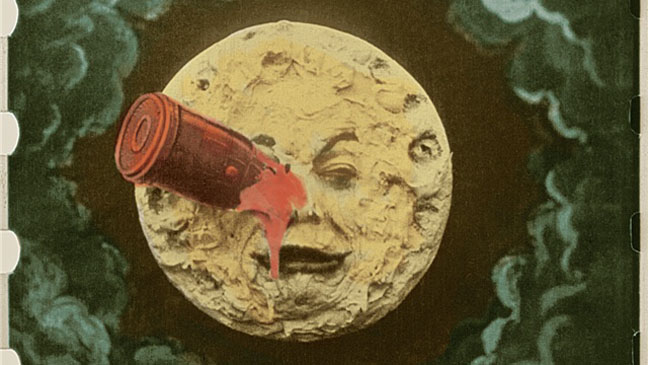
Georges Méliès was a magician before he was a filmmaker (mostly because cinema was an extremely new medium by the time he actually dabbled in the artform). He became one of the biggest inspirations for directing, because he tried to use his knowledge as an illusionist to make cinema a work of visual trickery instead of just a story telling medium. He didn’t stray away from an imaginative narrative, though.
One of his key examples (mainly because the majority of his works are considered lost now) is the ever-famous A Trip to the Moon. A rocket gets blasted into the moon (no, seriously, into the eye of the moon, actually), and the astronauts (a series of club members driven by science and philosophy) come across the vicious citizens of the moon (Selenites). Cross-cuts and trap doors make beings disappear into thin air (or teleport).
This short has been spoofed, parodied, referenced, and championed countless times since, mostly because of its influence. It remains a certain work of wonder (and a fantastical time capsule) of its era.
2. Metropolis
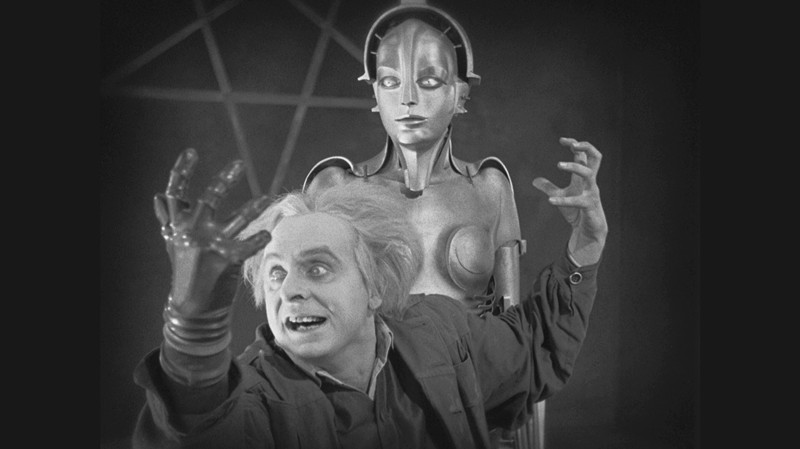
Another film from the silent era that has had its stamp on cinematic history; we may experience the impact of Fritz Lang’s Metropolis more often nowadays. I’d argue that every single science fiction film after 1927 has had some sort of inspiration from this expressionist masterpiece.
The looming towers, the hell-like lower class, the futuristic combinations of nature and technology in the gardens of the upper class, the androids, the commentary on society, all of it has been reflected upon in science fiction works since.
Science Fiction became a means of commenting on how we acted as people now being projected in either the future, or in a different reality (when it comes to cinema, anyways). The greatest science fiction film is hard to peg down, but it is an absolute sin if Metropolis isn’t in that conversation; it essentially birthed all of the ideas for the genre in cinema.
3. Donkey Skin
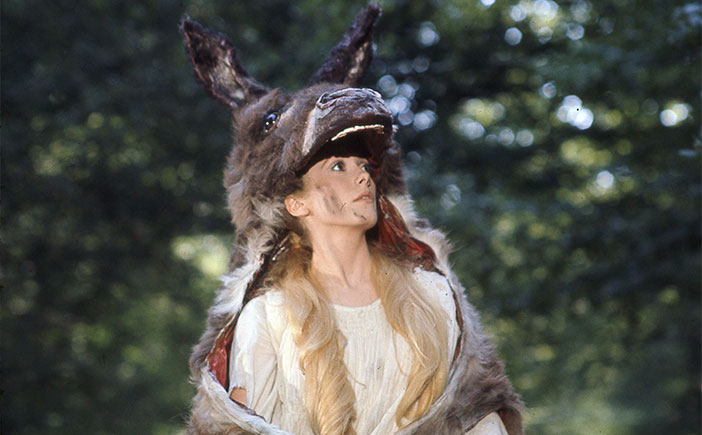
This underrated work by Jacques Demy is an adaptation of a centuries old fairytale by Charles Perrault involves similar themes to a much more well-known story: Beauty and The Beast. However, the “ugliness” is self-imposed by a princess to get out of an arranged marriage with her own king father after his wife has passed away. The princess wears the titular donkey skin to vanish, and finds a new life within a different class and through different means.
Donkey Skin feels like a series of various external mediums turning cinematic. It is a living battledore book fixed on properly-fixed images. It is a living stage play, full of costumes that seem like props to us, but are immersive within their universe. It is a breathing sonnet that works in musical form and thrives off of every beat and lyric. It simply is magical.
4. The Discreet Charm of the Bourgeoisie
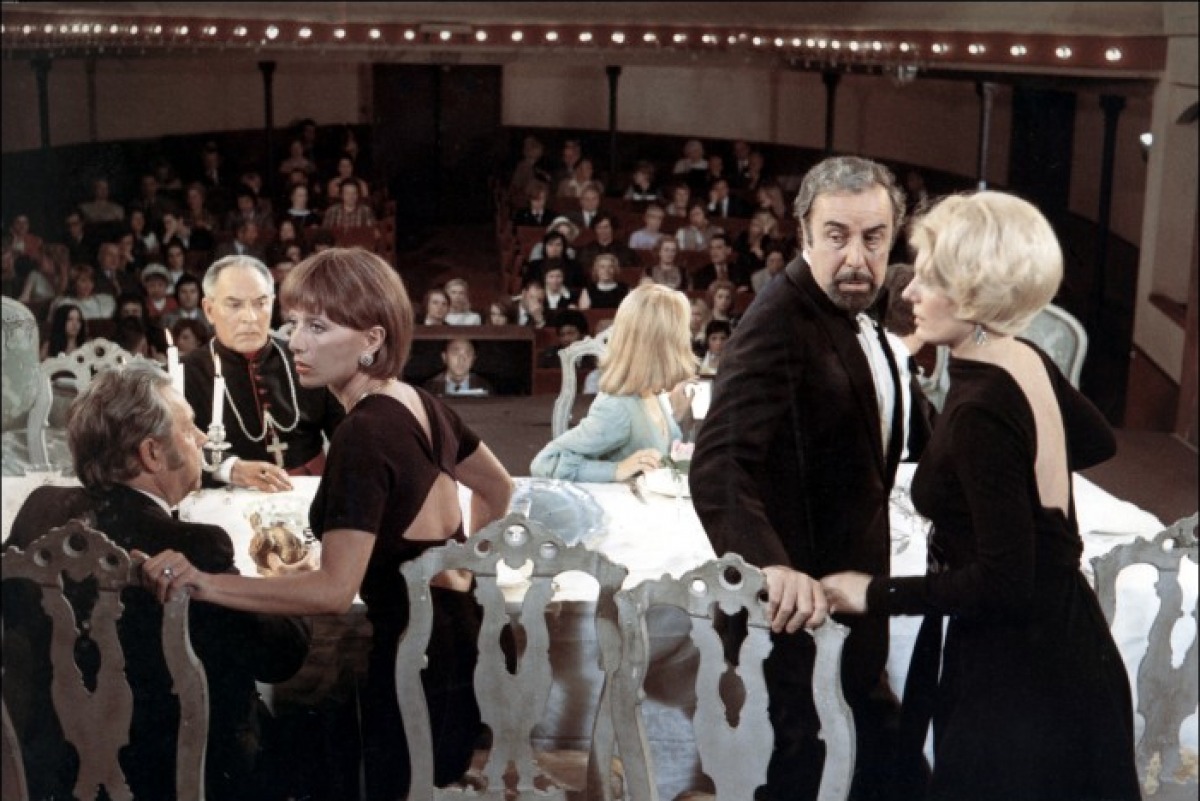
This film gets featured a lot, but it picks apart the very basis of what a film can be (naturally this makes it a prime contender for many cinematic lists). In any case, if we’re discussing imaginative films, we cannot dismiss the entire filmography of Luis Buñuel.
In The Discreet Charm of the Bourgeoisie, we witness the upper class try to have dinner again and again. Each and every subsequent effort gets more and more ridiculous. We start off with a misunderstood schedule. We follow that up with the gang accidentally appearing on a stage in front of a crowd, a ghost tale, sexual excursions, and even a mass murder.
At one point, we start “waking up” and finding ourselves in the minds of these dinner patrons (enough levels of the subconscious to make Christopher Nolan question where we are). This film is purgatory for the elite, and it’s a playground for the rest of us.
5. Brazil
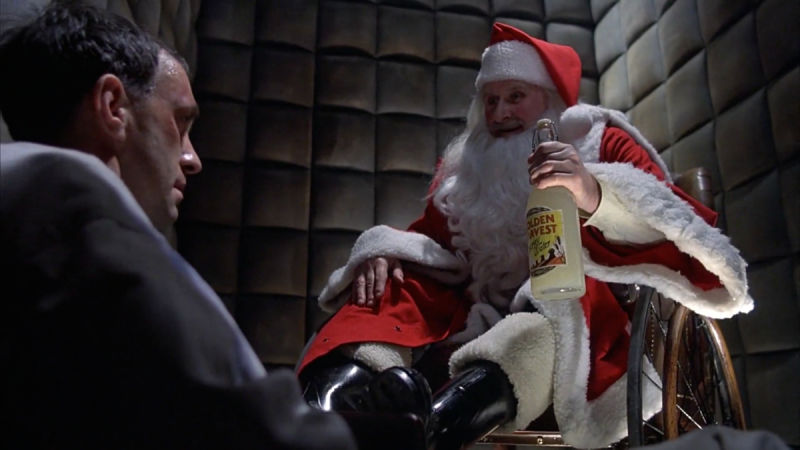
Where do we even begin with the all-time greatest reinterpretation of George Orwell’s 1984? I’m still not convinced that a vast majority of this piece wasn’t within the mind of Sam Lowry, and luckily the ending (the true ending, not the “Love Conquers All” bastardization of the film) is open enough to allow us to question how much of the film’s narrative was reliable. Of course, his dreams/nightmares are of his own imagination, but we can even question if particular people even exist.
That’s the amazing thing when it comes to Terry Gilliam’s opus: we truly are within the mind of someone that has gone mad in a dystopia. Even the “real” aspects are all hellish to endure (if you want to go the extra mile and assume that literally all of the film is through Lowry’s eyes, I wouldn’t blame you).
Whether you love the film or not, I think every cinephiles owes this film a watch, because you will notice that there is a time before you’ve seen Brazil, and a time after; it is quite significant on what you approach to watch after.